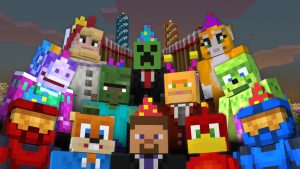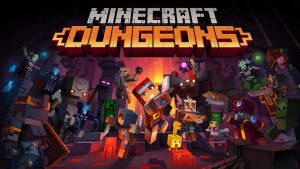Introduction
Welcome to the world of online gaming, where millions of players from around the globe come together to compete, collaborate, and immerse themselves in virtual worlds. While online gaming offers a plethora of opportunities for entertainment and social interaction, it is important to acknowledge the existence of certain negative aspects that can potentially harm the gaming experience for some individuals. One such issue is online gaming mobbing, a phenomenon that can have severe emotional and psychological consequences.
Online gaming mobbing, also known as online gaming bullying or cyberbullying, is the act of intentionally targeting and harassing a player within an online gaming community. It involves repeated and hostile behavior, such as verbal abuse, threats, exclusion, and spreading false rumors. This type of mobbing can occur across various platforms, including multiplayer games, chat rooms, and forums, and is often fueled by anonymity and the competitive nature of online gaming.
Unfortunately, online gaming mobbing can have detrimental effects on the mental well-being of those who become victims. It can lead to feelings of anxiety, depression, low self-esteem, and even suicidal thoughts. The constant harassment and humiliation inflicted by others can create a toxic gaming environment, making it difficult for victims to enjoy their favorite games and connect with fellow players.
There are different types of online gaming mobbing, each with its own characteristics and methods of perpetration. Examples include verbal abuse, trolling, doxing (revealing personal information without consent), and griefing (intentionally disrupting gameplay or ruining the experience for others).
This article aims to shed light on the signs and symptoms of online gaming mobbing, the various types of mobbing that can occur, and the effects it can have on individuals. Additionally, it will provide insights into how to deal with online gaming mobbing and strategies for preventing it from happening in the first place. By building awareness and promoting a safe and positive gaming environment, we can foster a more enjoyable experience for all players.
Definition of Online Gaming Mobbing
Online gaming mobbing, also referred to as online gaming bullying or cyberbullying, is a form of aggressive behavior that occurs within online gaming communities. It involves individuals or groups intentionally targeting and harassing a player through various means, such as verbal abuse, threats, and exclusion. The purpose of online gaming mobbing is to intimidate, humiliate, and exert power over the victim.
Unlike traditional bullying that takes place in physical environments, online gaming mobbing happens in virtual spaces, facilitated by the internet and gaming platforms. This digital aspect of mobbing allows perpetrators to hide behind screen names, avatars, or anonymous online personas, providing them with a sense of anonymity and reduced accountability for their actions.
Online gaming mobbing can take many forms, including but not limited to:
- Verbal abuse: This involves the use of offensive language, derogatory remarks, and personal attacks intended to demean and belittle the victim.
- Trolling: Trolling refers to engaging in disruptive behavior with the intention of provoking and irritating others. This can include spreading false information, making inflammatory comments, or purposefully derailing conversations.
- Doxing: Doxing is the act of revealing or publishing a person’s personal information without their consent. Perpetrators may share private information, such as their real name, address, phone number, or social media profiles, in an attempt to invade their privacy and potentially cause harm.
- Griefing: Griefing involves intentionally disrupting gameplay or sabotaging the experience of others. This can include actions like deliberately team-killing, stealing items or resources, and purposely hindering the progress of other players.
It is essential to differentiate between constructive criticism and online gaming mobbing. Constructive criticism focuses on providing feedback to help players improve their skills and gameplay, while mobbing is driven by malicious intent and is intended to cause harm. The distinction lies in the tone, intention, and repeated nature of the behavior.
Online gaming mobbing can have severe consequences for the victims. It can lead to emotional distress, anxiety, depression, and a decline in their overall well-being. Victims may experience a loss of interest in gaming, withdraw from social interactions, and develop feelings of isolation and insecurity.
Understanding the definition of online gaming mobbing is crucial in recognizing and addressing this issue within the gaming community. By raising awareness and promoting a culture of respect and inclusivity, we can strive for a safer and more enjoyable environment for all players.
Signs and Symptoms
Identifying the signs and symptoms of online gaming mobbing is crucial in order to provide support to victims and take necessary actions to address the issue. While each individual may react differently, there are common indicators that can suggest someone is experiencing online gaming mobbing.
Here are some signs and symptoms to look out for:
- Emotional distress: Victims of online gaming mobbing may display signs of emotional distress, such as increased irritability, anger, sadness, or frequent mood swings. They may become more withdrawn or express feelings of worthlessness due to the constant harassment.
- Changes in behavior: Pay attention to any sudden or noticeable changes in the behavior of the player. This can include a decline in their gaming performance, loss of interest in activities they once enjoyed, or a reluctance to participate in multiplayer interactions.
- Social isolation: Victims of online gaming mobbing may distance themselves from their usual gaming communities and avoid interacting with other players. They may disconnect from voice chat, leave gaming groups, or delete their accounts altogether.
- Low self-esteem: Harassment and targeted aggression can greatly impact a person’s self-worth. Victims may develop feelings of low self-esteem, doubt their abilities, or question their value as a player within the gaming community.
- Physical symptoms: The stress and anxiety caused by online gaming mobbing may manifest in physical symptoms, such as sleep disturbances, changes in appetite, headaches, or stomachaches.
It is important to note that these signs and symptoms can also be indicative of other underlying issues. However, if they are persistent and coincide with the individual’s participation in online gaming, it is essential to consider the possibility of online gaming mobbing.
As a gaming community, it is our responsibility to create an environment that is safe, inclusive, and free from harassment. By recognizing the signs and symptoms of online gaming mobbing, we can better support those who are affected and take proactive measures to address the issue.
Types of Online Gaming Mobbing
Online gaming mobbing can manifest in various forms, each with its own characteristics and methods of perpetration. Understanding the different types of mobbing that can occur within online gaming communities is crucial in order to effectively address and combat this issue.
Here are some common types of online gaming mobbing:
- Verbal Abuse: One of the most prevalent forms of online gaming mobbing is verbal abuse. This involves the use of offensive language, derogatory remarks, and personal attacks aimed at demeaning and belittling the victim. It can include insults about one’s gaming skills, appearance, or personal characteristics.
- Trolling: Trolling is a form of online gaming mobbing characterized by engaging in disruptive behavior with the intention of provoking and irritating others. Trolls often make inflammatory comments, spread false information, or intentionally derail discussions with nonsensical or off-topic remarks.
- Doxing: Doxing, short for “documenting,” is the act of revealing or publishing a person’s personal information without their consent. In the context of online gaming mobbing, doxing involves sharing private information such as a player’s real name, address, or social media profiles. This invasion of privacy can lead to real-life consequences and potentially put the victim’s safety at risk.
- Griefing: Griefing occurs when a player intentionally disrupts gameplay or sabotages the experience for others. This can include actions such as team-killing, stealing items or resources, intentionally hindering the progress of other players, or engaging in other disruptive behaviors that negatively impact the game environment.
- Exclusion and Social Manipulation: Some forms of online gaming mobbing involve manipulating social dynamics within the gaming community. This can include intentionally excluding a player from group activities or cliques, spreading rumors or lies about them, or manipulating others into ostracizing the victim.
- Cyberstalking: Cyberstalking is a more extreme form of online gaming mobbing that involves persistent and unwanted harassment, monitoring, or pursuit of an individual. This can include sending threatening or intimidating messages, constantly following and targeting a player across multiple games or platforms, or invading their privacy through intrusive actions.
It is important to note that these types of online gaming mobbing are not mutually exclusive, and individuals may experience a combination of different forms of mobbing. Recognizing these different types allows us to better understand the dynamics of online gaming mobbing and implement strategies to address and prevent it from occurring.
The Effects of Online Gaming Mobbing
Online gaming mobbing can have severe and long-lasting effects on the well-being and mental health of those who experience it. The constant harassment, intimidation, and targeted aggression can have profound consequences for the victims.
Here are some of the main effects of online gaming mobbing:
- Psychological Distress: Victims of online gaming mobbing often experience psychological distress, including increased levels of anxiety, depression, and stress. The relentless harassment and negativity can lead to a constant feeling of fear, unease, and helplessness.
- Low Self-esteem: Online gaming mobbing can significantly impact a person’s self-esteem and self-worth. Constant criticism, humiliation, and exclusion can erode their confidence and make them doubt their abilities as a gamer and as an individual.
- Social Isolation: The social dynamics within online gaming communities can be greatly affected by mobbing. Victims may choose to isolate themselves from the gaming community, withdrawing from interactions with others out of fear of further harassment. This isolation can lead to feelings of loneliness and disconnection.
- Decline in Performance: Continuous mobbing can have a negative impact on a player’s gaming performance. The stress and anxiety caused by the harassment can hinder their ability to concentrate, make sound decisions, and perform at their best, resulting in a decline in their overall gaming skills.
- Physical Health Issues: The emotional turmoil caused by online gaming mobbing can manifest in physical health issues. Victims may experience sleep disturbances, such as insomnia or nightmares, as well as other stress-related symptoms like headaches, stomachaches, and appetite changes.
- Impact on Mental Well-being: The cumulative effects of online gaming mobbing can lead to long-term mental health problems. Victims may develop chronic anxiety, depression, or even thoughts of self-harm or suicide due to the emotional toll caused by the mobbing.
It is essential to recognize and address the effects of online gaming mobbing to provide the necessary support to the victims. Creating safe and inclusive gaming communities requires proactive measures to prevent and combat mobbing, promoting a culture of respect, empathy, and kindness among players.
How to Deal with Online Gaming Mobbing
Dealing with online gaming mobbing can be challenging, but it is crucial to take appropriate steps to protect yourself and minimize the impact of the harassment. Here are some strategies to help you deal with online gaming mobbing:
- Document the Evidence: Keep a record of any instances of online gaming mobbing, including screenshots, chat logs, or video recordings. This evidence can be helpful if you decide to report the harassment or take further action.
- Don’t Engage: Avoid engaging with the individuals who are harassing you. Responding to their provocations or retaliating can often escalate the situation. Instead, focus on maintaining your composure and ignoring their negative behavior.
- Block and Report: Most online gaming platforms have features that allow you to block and report players who are engaging in mobbing or other forms of harassment. Utilize these features to protect yourself and alert the platform administrators about the issue.
- Seek Support: Reach out to friends, fellow gamers, or supportive communities within the gaming community who can provide emotional support and guidance. Sharing your experiences with others who understand can help alleviate feelings of isolation and restore a sense of belonging.
- Take Breaks: If the online gaming mobbing becomes overwhelming, it’s okay to take breaks from gaming. Taking time away from the game can help you regain your composure, focus on self-care, and evaluate if continuing to participate in that particular gaming environment is worth your mental well-being.
- Report to Game Administrators: If the mobbing persists or escalates, report the issue to the game administrators or customer support. They have protocols in place to investigate and take appropriate action against players who engage in mobbing or other forms of harassment.
- Seek Professional Help: If you find that the online gaming mobbing has had a significant impact on your mental health and well-being, consider seeking professional help. A therapist or counselor can provide support, strategies, and coping mechanisms to help you navigate through the emotional challenges caused by the mobbing.
Remember, you are not alone in dealing with online gaming mobbing. Seeking support and taking proactive measures to address the issue can help protect your mental well-being and create a safer and more enjoyable gaming environment for all.
Preventing Online Gaming Mobbing
Preventing online gaming mobbing requires collective efforts from both gaming communities and individual players. By promoting a culture of respect, empathy, and inclusivity, we can create an environment that discourages mobbing and fosters positive interactions among gamers. Here are some strategies to prevent online gaming mobbing:
- Educate and Raise Awareness: Educate players about the impact and consequences of online gaming mobbing. Raise awareness about the signs of mobbing and the importance of treating others with kindness and respect.
- Promote Positive Role Models: Encourage and highlight positive role models within the gaming community who exhibit respectful and supportive behaviors. By showcasing constructive interactions, we can inspire others to follow suit.
- Encourage Reporting and Accountability: Establish clear reporting mechanisms within gaming platforms and communities, and ensure that reports of mobbing are taken seriously. Encourage players to report incidents to the relevant authorities so appropriate actions can be taken against perpetrators.
- Set Community Guidelines: Develop and enforce community guidelines that explicitly prohibit mobbing and other forms of harassment. Make these guidelines readily accessible to all players and ensure they understand the consequences of violating them.
- Promote Positive Communication: Encourage open and respectful communication among players. Foster an environment where individuals feel safe expressing their opinions, collaborating, and resolving conflicts peacefully without resorting to mobbing or abusive behavior.
- Provide Support and Resources: Offer resources and support systems for players who experience online gaming mobbing. This can include providing information on how to report incidents, access counseling services, or seek guidance from support groups or hotlines.
- Foster a Mentoring System: Implement a mentoring system where experienced and supportive players can assist newcomers and provide guidance. This system can help foster a sense of community and discourage mobbing.
- Lead by Example: As individual players, we can lead by example and treat others with respect, kindness, and fairness. By being a positive influence in the gaming community, we can inspire others to follow suit and contribute to a supportive gaming environment.
It is essential to remember that preventing online gaming mobbing is an ongoing effort. By implementing these strategies and actively promoting a culture of respect and inclusivity, we can create a safer and more enjoyable gaming experience for all players.
Conclusion
Online gaming mobbing is a serious issue that can have devastating effects on the well-being and enjoyment of players within gaming communities. It is essential for individuals, gaming platforms, and communities to come together and address this problem through proactive measures.
By understanding the definition of online gaming mobbing, recognizing the signs and symptoms, and differentiating it from constructive criticism, we can better identify instances of mobbing and provide support to those who are affected. Additionally, by raising awareness about the various types of mobbing and their harmful consequences, we can work towards creating a more inclusive and respectful gaming environment.
Dealing with online gaming mobbing requires documentation of evidence, seeking support from others, and taking appropriate actions such as blocking and reporting perpetrators. It is crucial to prioritize self-care and mental well-being by taking breaks when needed and seeking professional help if necessary.
Prevention is key in combatting online gaming mobbing. By educating players, promoting positive role models, setting community guidelines, and fostering open communication, we can create a culture that values respect and discourages mobbing. Providing support, resources, and mentoring systems can also contribute to a safer and more supportive gaming environment.
Ultimately, by working together and taking these preventive measures, we can make a positive impact and create a gaming community where everyone feels welcomed, respected, and free from the harmful effects of online gaming mobbing.

























